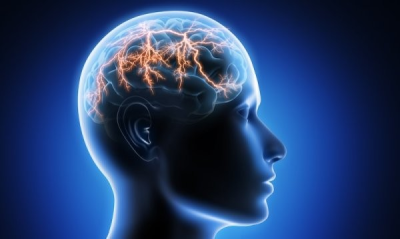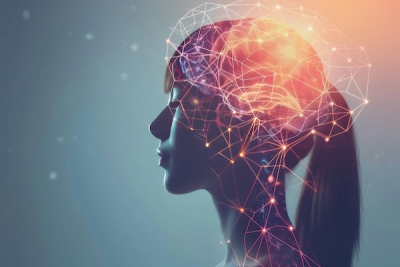Did You Know That CBD Also Helps with Epilepsy in Animals?
Epidiolex and epilepsy
Did you know there is a CBD-based medication for epilepsy in children approved by the Food and Drug Administration (FDA)? It’s called Epidiolex.
It is a prescription medication, not an over-the-counter product, and is used to treat two rare forms of epilepsy in children under 2 years old: Dravet syndrome and Lennox-Gastaut syndrome.
How to dose CBD for epilepsy?
The recommended daily dosage is based on the experiences we've gathered at our cannabis advisory clinic:
- If the timing of your seizures is unpredictable or they occur sporadically, we recommend taking a 10% CBD oil twice daily (start with 5% for children and gradually increase). Start with one drop twice daily and increase over several days until the desired effect is achieved.
- If your seizures occur at specific times of the day, focus your dosing around those times, applying CBD approximately an hour beforehand.
If seizures trouble you mostly at night, take 10% CBD before bed and upon waking.
Additionally, if a seizure occurs at any time during the day, regardless of your daily dosage, apply the entire daily dose between your lip and gum, massaging it into the gums with circular finger movements.
How long does it take for CBD to show efects in epilepsy treatment?
The time it takes for CBD to begin showing effects in epilepsy treatment can vary depending on several factors, including:
- Type of epilepsy: Different forms of epilepsy may respond to CBD treatment at different rates. Some may be more sensitive to its effects.
- CBD dosage: The effectiveness of CBD can depend on the dose. Some patients may need higher doses, while others may benefit from smaller amounts.
- Individual variability: Each person’s unique biochemistry and genetic makeup can affect how quickly they respond to CBD treatment.
Generally, some patients may start noticing relief from seizures and other symptoms within a few days or weeks, while others may take longer.
What is the difference between CBD and THC and their impact on epilepsy treatment?
The main difference between CBD and THC is psychoactivity—while CBD is non-psychoactive, THC is. THC is not recommended for treating epilepsy and can even worsen symptoms, primarily by increasing the frequency of seizures.
Taking CBD along with epilepsy medications
When taking epilepsy medications, it's important to maintain a gap of at least 2 hours between antiepileptic drugs and CBD supplements. Following this gap can prevent interactions and ensure that the effectiveness of your antiepileptic drugs is not reduced.
Is there a difference in the efectiveness of different forms of CBD?
Yes, there is. In general, we recommend using CBD in drop form for epilepsy, as drops have a faster onset of action. This form can also be used acutely during a seizure.
- Reduction in the number of seizures: Several studies have shown that CBD can lead to a reduction in seizure frequency in patients with various forms of epilepsy, including Lennox-Gastaut syndrome (LGS) and Dravet syndrome.
- Improved quality of life: Some studies suggest that CBD can improve the quality of life for epilepsy patients by reducing seizure frequency and improving other symptoms associated with the disorder.
- Safety and tolerability: Most studies indicate that CBD is generally well-tolerated in epilepsy patients, although side effects such as fatigue, diarrhea, or appetite changes can occur.
Clinical study on CBD and epilepsy
In a clinical study, 15 patients with generalized epileptic seizures were randomly assigned to receive either 200-300 mg of CBD per day or a placebo. The study lasted 4.5 months, and all patients tolerated the CBD well.
Side effects of CBD in epilepsy
Side effects observed in studies include:
- Vomiting
- Diarrhea
- Reduced appetite
- Fatigue
- Fever
If any of these symptoms occur, it is advisable to stop using CBD.
Experience with CBD hemp for epilepsy
Cannabis is very suitable for treating epilepsy, especially in severe cases where conventional medicine fails.
We bring you an exclusive interview with the mother of little Leontýnka, who suffers from uncontrolled epilepsy, and for whom CBD oil has greatly helped with epilepsy:
What treatment was initially prescribed after the first diagnosis?
Medication for epilepsy.
How did you learn about CBD, and what did you start with? What was the dosage?
We found out about it online. We started with drops from another company and 10% CBD oil when my daughter was 3 years old. Unfortunately, after long-term use, they didn’t have the desired effect. At 4 years old, her epilepsy was controlled, and she was seizure-free for a long time.
When she turned 5, the seizures returned, but more intensely. Strong, frequent, with loss of consciousness. The neurologist slightly increased her medication, but unfortunately, it didn’t help. So, we resumed using CBD, this time from your company.
How soon did you notice the first effects, and what were they?
The effects appeared fairly quickly, within 14 days. The seizures were not as frequent or as severe. Now, after long-term use, she went from having 6–8 strong seizures with loss of consciousness per week to just 1–2. When we managed to administer CBD during a seizure, we could see relief in our daughter. The convulsions weren’t as strong, and she wasn’t as tired afterward.
Of course, sometimes we still have to administer Diazepam, but as parents, we know when nature alone isn't enough.
Did you feel that CBD had any side effects?
We are not aware of any side effects. On the contrary.
How long did it take to find the ideal dosage, and what dosage (and products) are you using now?
We found the right dosage within a month. Now my daughter is on 20% CBD and takes 6 drops 3–4 times a day, as needed. It also helps with spasms.
How long has she been using CBD, and how would you evaluate its overall impact on her health?
I’m not sure exactly how long she’s been using CBD, approximately three months. I can only say that it doesn’t just affect epilepsy. My daughter is severely disabled and bedridden. It affects not only the seizures but also her overall well-being. After taking the drops, she is more responsive, reacts better to stimuli, doesn’t harm herself, is happier, and sleeps better.
What would you like to say to parents who are hesitant about using it for their children?
I would definitely like to tell parents that if their children are struggling with epilepsy, poor sleep, aggression, anxiety, or even pain, they shouldn’t hesitate to try CBD. You need to find the right therapy for the drops to work, but that’s true for all medications. It’s certainly suitable as supportive therapy.
-----------------------------------------------------------------------------------------------------------------------------------------
Additional Experiences with CBD for Epilepsy:
I switched to using CBD oil
A mother transitioned to using CBD oil for her son, who suffers from epilepsy. Since starting CBD, his seizures have dramatically decreased. She is very grateful!
Anežka, CZ
CBD and psychogenic seizures
Another mother shares how her epileptic son also developed psychogenic seizures. After consulting with a doctor, she began using CBD oil, and his seizures miraculously disappeared for at least 6 to 8 weeks before needing to increase the dosage again. She calls it a miracle!
Barbora, Germany
CBD hemp oil for epilepsy
Marie, another parent, shares that her son, now 15, has been battling untreatable epilepsy for 1.5 years. After using CBD oil, his seizures reduced to just one during the summer, though they returned when they stopped the treatment. But the relief provided by CBD oil is worth it.
Marie
CBD for seizures
Finally, Lenka shares how her seriously disabled boyfriend experienced fewer seizures thanks to CBD oil, after traditional medicine only worsened his condition. She’s grateful that CBD oil has no negative or side effects.
Lenka
For more information, visit the following sources:



